ALSO BY NOAM CHOMSKY
Hegemony or Survival:
Americas Quest for Global Dominance
IMPERIAL AMBITIONS
NOAM CHOMSKY
IMPERIAL
AMBITIONS
CONVERSATIONS ON
THE POST-9/11 WORLD
INTERVIEWS WITH
DAVID BARSAMIAN


Metropolitan Books
Henry Holt and Company, LLC
Publishers since 1866
175 Fifth Avenue
New York, New York 10010
www.henryholt.com
Metropolitan Books and  are registered trademarks of Henry Holt and Company, LLC.
are registered trademarks of Henry Holt and Company, LLC.
Copyright 2005 by Aviva Chomsky and David All rights reserved.
Distributed in Canada by H. B. Fenn and Company Ltd.
Library of Congress Cataloging-in-Publication Data
Chomsky, Noam.
Imperial ambitions : conversations on the post-9/11 world / Noam Chomsky ; interviews with David Barsamian.1st ed.
p. cm.
Includes index.
ISBN-13: 978-0-8050-7967-8
ISBN-10: 0-8050-7967-X
1. United StatesForeign relations2001- 2. Preemptive attack (Military science) 3. Iraq War, 2003. 4. Imperialism. 5. United StatesPolitics and government2001- 6. World politics19952005. 7. Global warming. 8. Chomsky, NoamInterviews. I. Barsamian, David.
II. Title.
E902.C474 2005
327.73009051dc22
2005049639
Henry Holt books are available for special promotions and premiums. For details contact: Director, Special Markets.
First Edition 2005
Designed by Meryl Sussman Levavi
Printed in the United States of America
10 9 8 7 6 5 4 3
CONTENTS
INTRODUCTION
Im frequently asked, Whats it like to interview Noam Chomsky? In more than twenty years of working with him, Ive learned several things. One is, be prepared and put your questions in some order of priority. Another is, listen carefully, because you never know which way the conversation will go.
Chomskys soft voice masks a torrent of information and analysis. He has an extraordinary power to distill and synthesize reams of information. And he misses nothing. In one interview he referred to the 1988 shooting down of a civilian Iranian airliner by the USS Vincennes. I was flabbergasted to learn that his source was Proceedings, the journal of the U.S. Naval Institute.
I began Alternative Radio with a series of Chomsky interviews in 1986, and we have never stopped talking since. The interviews in this collection were mostly conducted in Chomskys office at MIT. The interview questions were unrehearsed. For this book we have edited the transcripts, expanded on our discussions, and added notes.
So whats it like to interview Chomsky? Its to be in the presence of someone who insists its not so complicated to understand the truth or to know how to act. Someone who defines and embodies what intellectuals should be. Who excoriates those who genuflect before power and denounce others while avoiding their own responsibility.
Chomsky sets the compass headings and describes the topography. It is up to us to navigate the terrain. It is my hope that the conversations in this book will spark thought, discussion, and, most of all, activism.
Special thanks to Anthony Arnove, comrade, friend, and editor par excellence; Sara Bershtel, publisher and editor par excellence; Elaine Bernard for her generosity; Greg Gigg for his suggestions; KGNU community radio; David Peterson, Chris Peterson, and Dale Wertz for their research assistance; Bev Stohl for accommodating my numerous requests; Martin Voelker for his technical support and friendship; and to Noam Chomsky for his solidarity, patience, and great sense of humor.
Sections of some of these interviews have appeared in different forms in International Socialist Review, Monthly Review, The Progressive, The Sun, and Z.
DAVID BARSAMIAN
Boulder, Colorado, July 2005
IMPERIAL AMBITIONS
ONE
IMPERIAL AMBITIONS
CAMBRIDGE, MASSACHUSETTS (MARCH 22, 2003)
What are the regional implications of the U.S. invasion and occupation of Iraq?
I think not only the region but the world in general correctly perceives the U.S. invasion as a test case, an effort to establish a new norm for the use of military force. This new norm was articulated in general terms by the White House in September 2002 when it announced the new National Security Strategy of the United States of America. not accidental that the drumbeat for war in Iraq coincided with the reports release.
The new doctrine was not one of preemptive war, which arguably falls within some stretched interpretation of the UN Charter, but rather a doctrine that doesnt begin to have any grounds in international law, namely, preventive war. That is, the United States will rule the world by force, and if there is any challenge to its dominationwhether it is perceived in the distance, invented, imagined, or whateverthen the United States will have the right to destroy that challenge before it becomes a threat. Thats preventive war, not preemptive war.
To establish a new norm, you have to do something. Of course, not every state has the capacity to create what is called a new norm. So if India invades Pakistan to put an end to monstrous atrocities, thats not a norm. But if the United States bombs Serbia on dubious grounds, thats a norm. Thats what power means.
The easiest way to establish a new norm, such as the right of preventive war, is to select a completely defenseless target, which can be easily overwhelmed by the most massive military force in human history. However, in order to do that credibly, at least in the eyes of your own population, you have to frighten people. So the defenseless target has to be characterized as an awesome threat to
So all this falls together. The doctrine is pronounced, the norm is established in a very easy case, the population is driven into a panic and, alone in the world, believes the fantastic threats to its existence, and is therefore willing to support military force in self-defense. And if you believe all of this, then it really is self-defense to invade Iraq, even though in reality the war is a textbook example of aggression, with the purpose of extending the scope for further aggression. Once the easy case is handled, you can move on to harder cases.
Much of the world is overwhelmingly opposed to the war because they see that this is not just about an attack on Iraq. Many people correctly perceive it exactly the way its intended, as a firm statement that you had better watch out, you could be next. Thats why the United
At the World Social Forum in Porto Alegre, Brazil, in February 2003, you described Bush and the people around him as radical nationalists engaging in imperial violence. Is this regime in Washington, D.C., substantively different from previous ones?
It is useful to have some historical perspective, so lets go to the opposite end of the political spectrum, about as far as you can get, the Kennedy liberals. In 1963, they announced a doctrine which is not very different from Bushs National Security Strategy. Dean Acheson, a respected elder statesman and a senior adviser to the Kennedy administration, delivered a lecture to the American Society of International Law in which he stated that no legal issue arises if the United States responds to any challenge to its power, position, and prestige.Cuban missile crisis was largely a result of a major campaign of international terrorism aimed at overthrowing Castrowhats now called
Next page

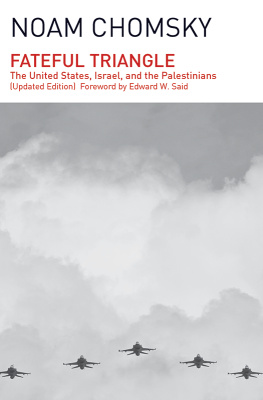
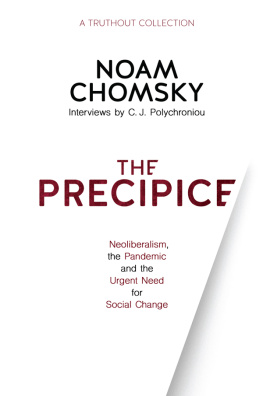
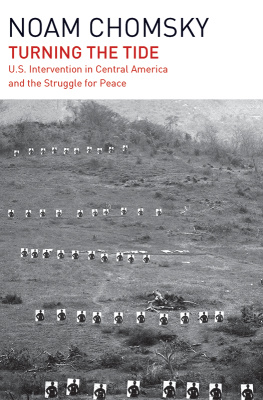
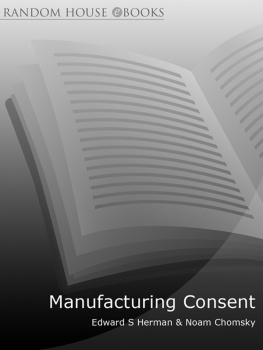
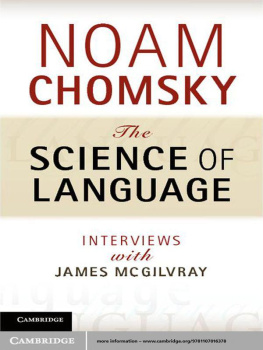
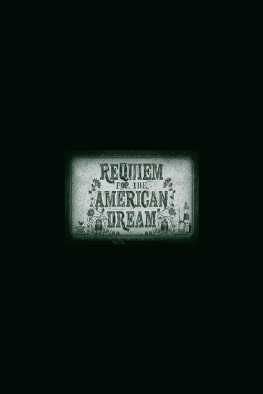
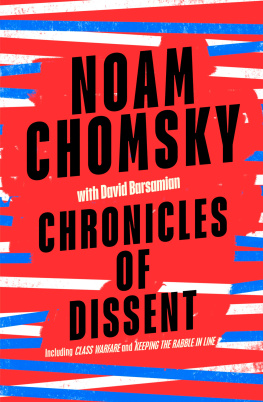
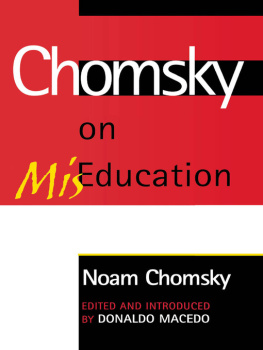



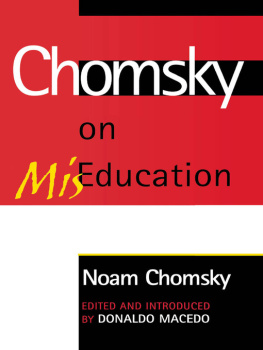
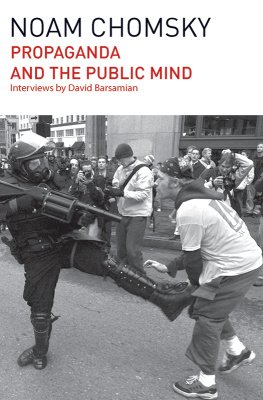
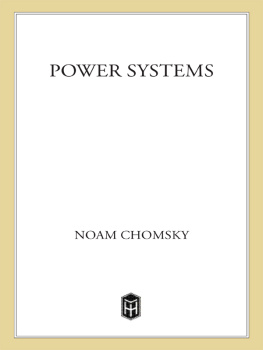
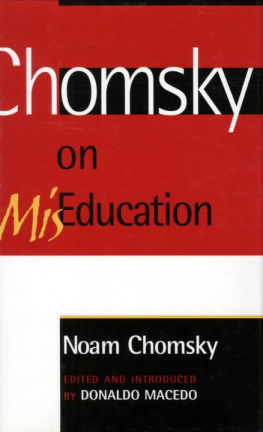


 are registered trademarks of Henry Holt and Company, LLC.
are registered trademarks of Henry Holt and Company, LLC.